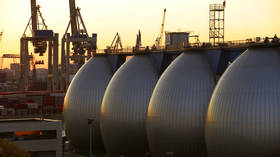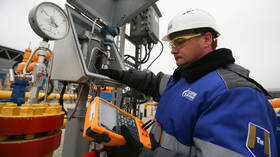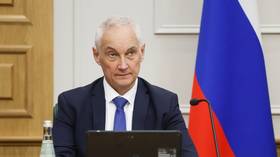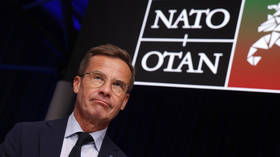Germany seals long-term energy deal with US

Germany has signed a long-term contract on imports of liquefied natural gas (LNG) from the US in a bid to secure energy supplies as it weans itself off deliveries from Russia.
The 20-year deal was sealed on Thursday between Germany’s Securing Energy for Europe (SEFE) and American firm Venture Global LNG. Gas importer SEFE was formerly a subsidiary of Russian energy giant Gazprom, and was known as Gazprom Germania.
The new agreement will provide Berlin with 2.25 million tons of LNG annually. It will also see Venture Global become Germany’s largest LNG supplier, with a combined 4.25 million tons of LNG per annum (mtpa), the company said.
“Venture Global is thrilled to begin a strategic partnership with SEFE, making our company the largest long-term LNG supplier to Germany,” said CEO Mike Sabel, who described SEFE as a key US ally.
Venture Global will deliver super-chilled fuel from its LNG Calcasieu Pass 2 (CP2) project to SEFE subsidiary Wingas. The construction of CP2 is set for later this year, and the terminal is expected to have a capacity of 20 million mtpa of LNG.
“By joining forces with Venture Global LNG, SEFE makes another important step on our mission to secure energy for German and European customers and meet the energy demand of the region,” SEFE CEO Egbert Laege, said.
Prior to the conflict in Ukraine, the EU’s largest economy met up to 40% of its demand with gas from Russia. Berlin reduced its reliance on fuel from the sanctioned country last year by replacing it with imports of LNG from the US and the Middle East.
Germany currently receives LNG via floating terminals in Wilhelmshaven, Lubmin, and Brunsbuttel. It is rapidly building up its own infrastructure to replace Russian supplies of natural gas.
In March, Bundestag MP Andrej Hunko warned against excessive reliance on LNG from the US, which he claimed was “by far more expensive and worse from an ecological point of view.”
Hunko cautioned that Germany had paid heavily for last year’s explosions on the Nord Stream pipelines, which had delivered cheap natural gas from Russia. The sabotage of the route has turned Germany’s dependence on Russian natural gas into an addiction to LNG from the US, the politician argued.
For more stories on economy & finance visit RT's business section













